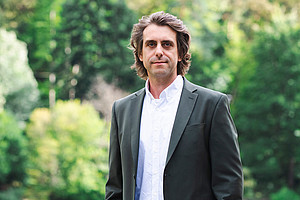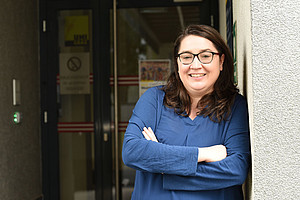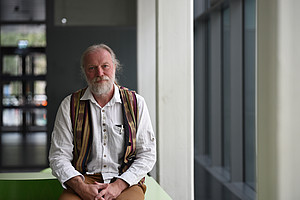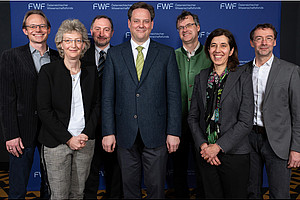"The topic of food is an excellent way to consider what sustainability means. After all, we interact with our environment every day through food. We buy food, prepare it and share food with others," says Heide Bruckner. The geographer has been researching and teaching about the social and environmental aspects of food systems and agro-food studies for many years. Together with Annette Sprung, a professor of adult education, she has designed an innovative teaching project. Closely linked to teaching theoretical concepts in critical race studies and food, students from the University of Graz and members of African communities living in Graz have the opportunity to approach the topic of sustainable eating through joint activities. These include shopping together at the farmers' market followed by cooking together, or an African food tour--during which students get to know African restaurants and grocery stores in the Graz community. The project is developed in close cooperation with the Chiala Verein.
Annette Sprung teaches and researches ways to make it easier for migrants to participate in society and initiate horizontal dialogue between differently-situated groups of people. She has already implemented several projects in this area. "Food is an issue of social justice and an ideal example of making political, ecological and social aspects of sustainability tangible. At the same time, it lends itself well to intercultural learning," emphasizes Sprung.
How we eat and what constitutes good food for us depends on our diverse and complex set of identities," says Heide Bruckner. One aim of the teaching project is to reflect on the challenges and hurdles that can make it difficult to eat well. "We usually have a very narrow idea of sustainable food - seasonal, regional, organic, vegan - and don't think about the fact that access to such food is not easy for everyone," says Bruckner. "Perhaps some immigrants don't feel comfortable at the farmers' market because they come from a different food culture or don't speak the German language well. They also don't share the same knowledge and experiences as people who have grown up in Austria," explains the researcher. All of this is important to bear in mind in order to avoid discrimination when talking about eating sustainably.
Green Academia Award
The teaching project "Eating our way through intersectional pedagogy. A teaching project in English language to connect intercultural learning and sustainability" by Annette Sprung and Heide Bruckner is one of several projects funded by the Green Academia Award. This prize, which was awarded by the University of Graz for the first time in 2023, honors branches of science that combine sustainable mobility and excellent research performance. It is endowed with a total of 90,000 euros. Educational sciences took first place last year. The prize money is used to support sustainable education, research and socially-relevant projects for staff and students.
The Green Academia Award is a measure taken by the University of Graz on its path to climate neutrality. The award promotes sustainable mobility, especially for international business trips, and at the same time honors special academic achievements by university employees. The Green Academia Award 2024 will be presented on October 10 as part of the University of Graz's Sustainability Day, following the lecture by Science Buster Florian Freistetter.




